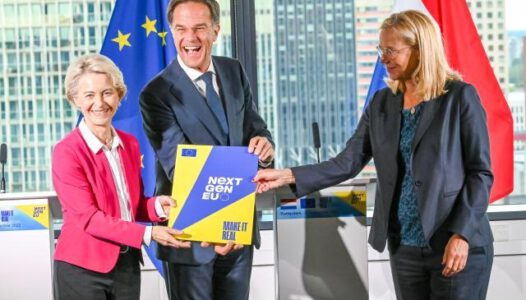On 29 September, the Commission positively assessed the Netherlands’ modified recovery and resilience plan, which includes a REPowerEU chapter. The plan is now worth €5.4 billion in grants and covers 22 reforms and 28 investments. The REPowerEU chapter includes a new reform and the scaling up of one investment to deliver on the REPowerEU Plan’s objectives to make Europe independent from Russian fossil fuels well before 2030, in light of Russia’s illegal invasion of Ukraine. In addition to this, the Netherlands has also proposed to modify nine measures included in the original plan and to introduce one new investment.
This for instance includes changing the unit of measurement for two targets on zero emission cargo ships for inland waterways, to reflect technological progress made over the last months. The new investment supports up- and reskilling of persons who receive temporary unemployment benefits.
The Netherlands’ changes to the original plan are based on the need to factor in:
- increased costs due to high energy prices;
- higher interest rates;
- persistent wide-spread labour shortages;
- technological progress;
- better alternative measures reaching the same goals.
To finance the increased ambition of its plan, the Netherlands has requested to transfer to the plan a part of its share of the Brexit Adjustment Reserve, in line with the REPowerEU Regulation, amounting to €280 million. Together with the Netherlands’ RRF and REPowerEU grants allocation (respectively €4.7 billion and €454 million), this makes the approved modified plan worth €5.4 billion.
An additional boost to the Netherlands’ green transition
The modified plan has a significantly stronger focus on the green transition, allocating 55% (up from 48% in the original plan) of the available funds to measures that support climate objectives. The reform and scaled up investment included in the REPowerEU chapter strongly contribute to the green transition. They support the Union’s 2030 climate targets and the objective of EU climate neutrality by 2050 through the deployment of renewable energy and reduction in energy demand.
The reform promotes investments in the electricity grid that are needed to reduce congestion. Other regulatory changes facilitate the expansion of the electricity grid and acceleration of permitting procedures for renewable energy projects. The significantly scaled up investment concerns an investment subsidy for sustainable energy and energy savings. Firms and households can benefit from this subsidy scheme for taking energy saving measures, such as the purchase of heat pumps, wall, glass and roof insulation, and solar boilers. These actions are expected to reduce energy demand by 30% on average.
The plan maintains support for the development of innovative green technologies, such as green hydrogen and for the connection of renewable energy, such as offshore wind farms, to the energy grid. The plan furthermore continues to support sustainable mobility, such as the development of zero-emission inland waterway transport.
In areas other than the green transition, such as the digital agenda and social resilience, the level of ambition of the original plan remains unchanged.
Next steps
The Council will now have, as a rule, four weeks to endorse the Commission’s assessment. The Council’s endorsement would allow the Netherlands to present its first payment request under the RRF.
The Commission will authorise further disbursements based on the satisfactory fulfilment of the milestones and targets outlined in the Netherlands’ recovery and resilience plan, reflecting progress on the implementation of the investments and reforms.






